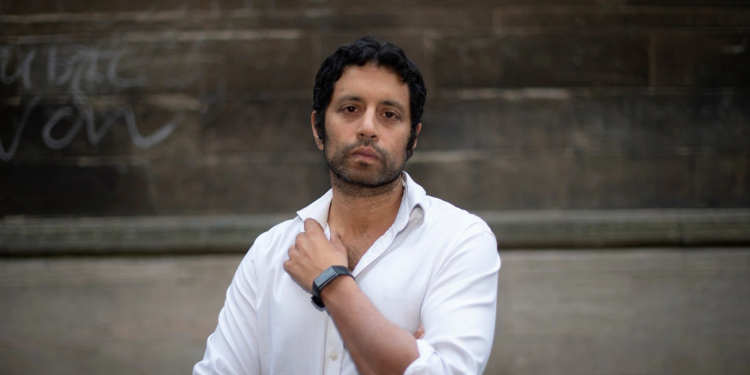A crackdown on censorship at U.K. universities is about to begin as the Government’s free speech Tsar gets to work bringing in a new complaints system and guidance, backed up by law. Arif Ahmed, the Director for Freedom of Speech and Academic Freedom at the Office for Students, has written about the coming changes in the Telegraph.
One in seven students does not feel free to express their views on campus. Studies have shown more than 30% of academics self-censoring – about twice the rate of most European countries. And the U.K. has slipped to about 60th place in the global Academic Freedom Index. We know there is a problem with free speech in English higher education.
Changes are coming to how it is protected. Following new legislation, the Office for Students (OfS) – the independent regulator of higher education in England – will launch a new complaints scheme.
The scheme will be free to use for students, staff at universities and visiting speakers who believe that their free speech rights have been constrained. Only lawful free speech is protected. So speech which incites violence, or racial hatred, or is otherwise illegal, is not protected. But there is no protection in law from feeling offended. Indeed, an effective higher education includes exposure to views which are unpopular and difficult.
This week the OfS has published draft guidance to help universities, colleges and students’ unions to navigate their responsibilities under the new legislation. It includes hypothetical examples to show these organisations both where free speech might have been constrained and what they may have to do to secure it.
The examples cover various issues – from global politics, to gender, to relationships with overseas regimes that may undermine free speech in English higher education.
We outline, in particular, an example where a university accepts international students on visiting scholarships funded by a foreign government. The scholars must accept the principles of that government and receive direction from it via consular staff. Such an arrangement may undermine free speech and academic freedom at the university. We will consider each case on its facts, but if there is suppression of free speech or academic freedom within the law, the university would likely be required to change or terminate this scholarship agreement.
Worth reading in full.












To join in with the discussion please make a donation to The Daily Sceptic.
Profanity and abuse will be removed and may lead to a permanent ban.
With such a high (30%) self censoring, what is the problem trying to be solved?
The problem, that should be obvious, is that anyone is forced to self censor.
Self-censorship doesn’t require force, that’s the beauty of it. It shows that the mind of the individual is being influenced by external messaging to a point where their behaviour has changed.
It requires intimidation:
If you dare criticise the wonder that is Islam, be prepared to be decapitated randomly in public. So we self-censor.
If you dare criticise the wonder that is Judaism, be prepared to be released from your job, debanked, slandered in the media, and gaslighted as some sort of lunatic who’s out of control. So we self-sensor.
If you dare criticise the wonder that is the Communist Party of China, be prepared to receive cyber attacks, malicious emails, threats and intimidation. So we self-sensor.
But of course criticism of Christianity; of Britain and British culture; of all western culture; is fair game, because we allow criticism of our institutions, it is a fundamental feature of democracy. We don’t need to self-censor here, there is no threat. We can say and think we want, do what we want, without fear of being threatened, living freely.
You’re probably free to criticize Judaism but the government of Israel must not be criticized as it routinely smears all its opponents as antisemites and this claim is equally routinely being accepted by everyone.
Should be obvious, but not to me. Forced or choose to self censor?
Choosing to self-sensor is another way of being forced, Graham. Otherwise why would you self-sensor in the first place? Through coercion, nudging, fear of reprisal, manipulation, peer pressure etc etc etc.
I am aware of the peer pressure points, nudging etc etc but a choice is a choice. Equally, perhaps its a generational thing, I expect an “academic” to be of robust character, with self belief and integrity. In my expectations of an academic and the 30% of a large number of “academics” if they possessed such character, you should have lots of independent Tsars.
Basically self censorship is a conscious act.
Well, starting with the most obvious, it’s not that hard to lose your job for saying the wrong thing – generally speaking but probably more so in academia. So a good first step would be protection in law for speech by employees, with the appropriate caveats where that speech was obviously directly detrimental to the employer e.g. don’t buy our products, they are rubbish. Another fairly obvious step is to prohibit any university that takes public money from using flimsy excuses not to allow certain speakers/debates to take place on university premises. I know less about the student side of things so not able to say much of use on that subject.
That second guessing thought process is the problem and the answer is not a Tsar. As Dr Mike Yeadon said on another matter, no one is coming to save us/you. Everyone has to take action.
Well we should all do what we can and no-one is coming to save is, I agree.
I also agree that more state interference is not necessarily the answer, even if the chap is “on our side” (???). But some clear laws would help, and withdrawal of funding to universities.
With such clear laws, there is a danger of reversing principles as happened during the lockdowns. Previously everything was allowed apart from what was prohibited by legislation. During lockdowns everything was prohibited apart from what was allowed by legislation. If a Tsar determines what is allowed, you are on a fast track to that principle.
Wishful thinking on the withdrawal of funding unfortunately
Well it’s all wishful thinking I fear
I’m assuming you mean: With such a high (30%) self censoring how can this solve the problem? Please correct me if I’m wrong. Self-censoring is a product of pressure. Pressure built up over a period of time through a slow trickle, then a flood, of ‘right-speak/right-thought. The trickle took the form of a thousand little nudges, the flood is the brazenly public chastisement of anyone who is deemed to be infected with wrong-think. Any resistance to the flow will lessen self-censoring.
Not really. I have explained a couple of points but strong principled people, acting consistent with their privileged position of an “academic” shouldn’t really need such a role in my opinion.
At the same time as this is happening we have new “Hate Speech” laws, like what is about to come into law in Scotland on April 1st. —–This seems like a great example of “The irresistible force versus the immovable object”. ———-But I suspect that in the age of Cultural Marxism this Tsar appointment will be just another bit of tokenism so Progressive Politicians can say “but look we appointed a Tsar”, in the same fashion as “look we have reduced the small boats” or “the cost of living crisis is over”. It will all just be kidology.
Erm, I’d like to know why, exactly, they’ve appointed a free speech ‘Tsar’ (ridiculous epithet) called Arif Ahmed. If he is a muzlim, as the name suggests, he hardly belongs to a culture that represents the value of free speech as we infidels understand it. If he is an apostate from that religion, he should use his position of supporting free speech to declare it loudly and often. Same applies if he is of another faith or an atheist.
Wasn’t there any White British man or woman, brought up in an era before the evil ‘hate speech’ laws were forced on us by Dictator Bliar and his fluffy sidekick Harriet Harperson, available to fill this role? Well of course there was, but the ruling traitors chose who they chose for cowardly wokey ideological reasons, not because of Ahmed’s suitability for it.
On the same theme but in a different arena, the same craven, bandwagon decisions are made by companies that want to sell beauty products to the majority of women in this country – White women – yet insult them by ignoring their existence altogether. Body Shop, Boots and many other such firms insist on showing Black, Asian (and any other non-white race they can find) models wearing their products. No Caucasians allowed, apparently.
I am so sick of this deliberate white-washing, I boycott these racist companies.
“Self censoring”——–Now where did I see that before again? ——Oh yeah North Korea. ——Over there it is called “Keep your mouth shut or else”
The likelihood of this apparently well meaning intervention working is scant. After twenty-seven consecutive years of authoritarian leftist governance all England’s instituitions are now corrupted beyond redemption. Reform is no longer feasible and radical destruction is required before civilization can develop again.
“radical destruction is required before civilization can develop again.”
Build Back Better then?😀
It would look better if the “Tsar” was called Fred Smith or Julie Jones but no let’s keep up with the times & have this trustworthy chap doing something that shouldn’t need doing in the first place !
I believe he has been at the front of the fight for quite some time. He led the charge at Cambridge.
Yet another Pakistani Muslim handed a top position, this time a Leftist now in charge of guarding the UK’s Freedom of Speech. Oh, but don’t worry, he claims to be an atheist, as so many do, though his middle name Mohuiddin means “Reviver of Islam”.
“One of the reasons that Professor Ahmed’s appointment was an unusually canny one for the current government is that his political views are largely inscrutable even to those colleagues and friends who know him best.
The son of an immigrant family that came to Britain from Pakistan, Ahmed read mathematics at Oxford and philosophy at Sussex and Cambridge universities. He acted for many years as a case-worker for a trade union. Yet on economic matters he is probably closer to a broadly more libertarian position. His views on immigration would put him at odds with policies that the current government is trying to implement.”
Profile: Professor Arif Ahmed | The Critic | The Critic Magazine
So this Leftist trade union activist of course supports the Mass Third World Invasion of the West, otherwise known as the Invasion of the Muslim Army, though he has carefully obscured his true political views, like a wolf in sheep’s clothing.
It’s just like another Pakistani Muslim with the same surname, Aaquil Ahmed (same caste), being the only person chosen as head of Religion and Ethics at both Channel 4 and the BBC simultaneously, and put in charge of the Christian “Songs of Praise”.
But don’t worry, nothing to see here.
Thanks for confirming my suspicions 🤦🏼♂️🤯
Yes, maybe we should all just give up and rename the British Isles as
“Outer Pakistan”.
Well researched. Thanks.
Ab-so-lute-ly spot on. Heretic. I posted something similarly critical before I saw your post, but you know more about this catspaw than I did.
I reckon he’s only got a few months left before he’s kicked out of his job by the next government.
Yeah, then Starmer can appoint another of the same ilk, but even worse. Maybe Chinese?